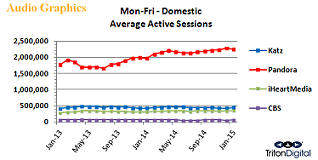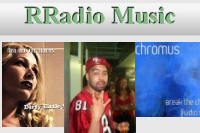![]()
|
Being Found is Lost Within Hyperbole of Being Online Maybe it's just me, but over the past year have you seen an explosion of articles and "experts" commenting on how to get the most from being online? Go through any trade publication - for artists or radio - and your head spins from the options - all wonderful opportunities that are positioned as easy to implement and built to help you succeed. Knowing that much of what's out there doesn't go beyond hype, hurts. Going "digital" is, more often than not, simply someone putting your name on a web site or offering more advertising impressions. I recently wrote about companies catering to independent artists. Summed up, my message is this: If someone is offering you an easy path to an audience, radio station or record label, run away. There is nothing easy or guaranteed just because we now have digital distribution. An unintended consequence of tech is competition growing exponentially, relative to all other musicians given that same internet access.
This is the part that doesn't get much play: Most damaging, especially as it becomes more apparent to Wall Street, is that this new move to measure radio's online audience will also show how few people are listening to each station's stream. It is bound to be a downer when various measuring companies start explaining daily reports to station managers. As an addendum to broadcast reach, there are not enough in your online audience to matter. The above is why I believe radio's online revenue should come from a cost-per-action or cost-per-lead pricing. Like artists, the radio industry, online and off, is caught in an exponential rise in competition. In radio's case, competition is not just companies in the audio space; it's all online ad networks selling CPM. Something that's very important: Internet venues built audiences then sold advertising with help from VC money. Radio is trying to sell digital advertising using old CPM pricing as it attempts to build an online audience - spending as little as possible. Being digital is not just running a banner ad or placing a pre-roll before your stream. It's having an ability to hand the advertiser a post-campaign report, or analyze response metrics in mid-campaign. Data exists to improve performance. That's the power of digital. (If anyone knows where this occurs in radio please forward the company name. I'll gladly give them credit.) How online metrics play out for radio will be interesting because with the excitement of being counted comes the reality of finding how much you are ignored. Next radio hot topic: It's not just being online that matters. It's being found. Tuesday, March 31, 2015  |
 |
 |
 |
comments by Disqus |






